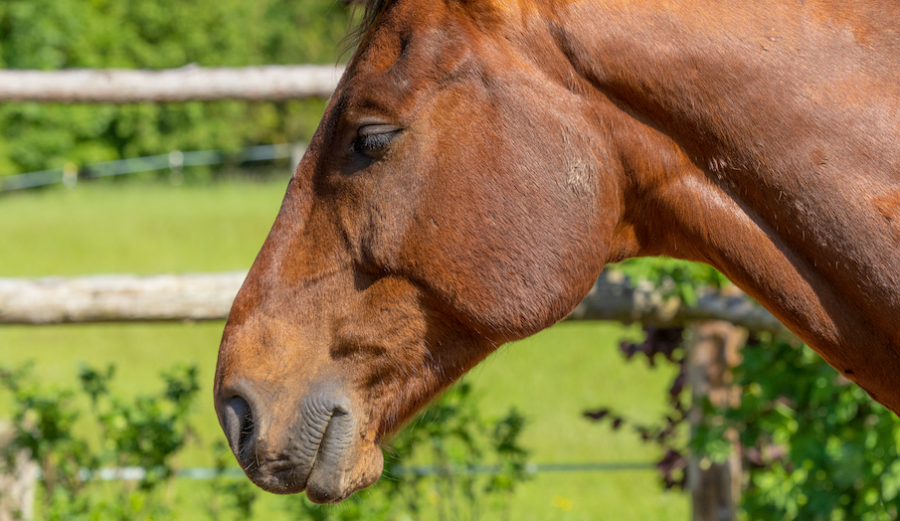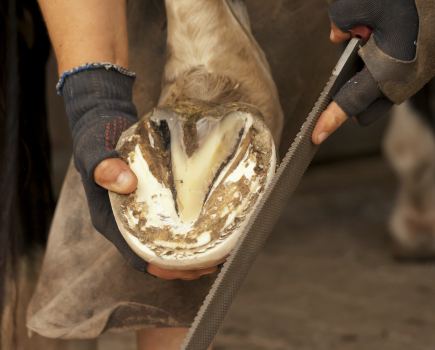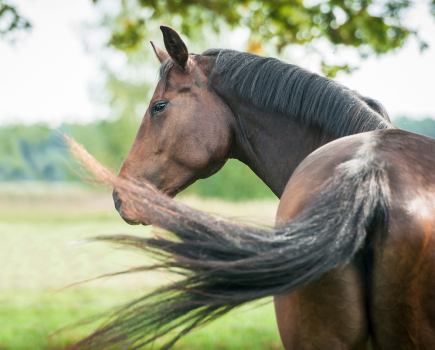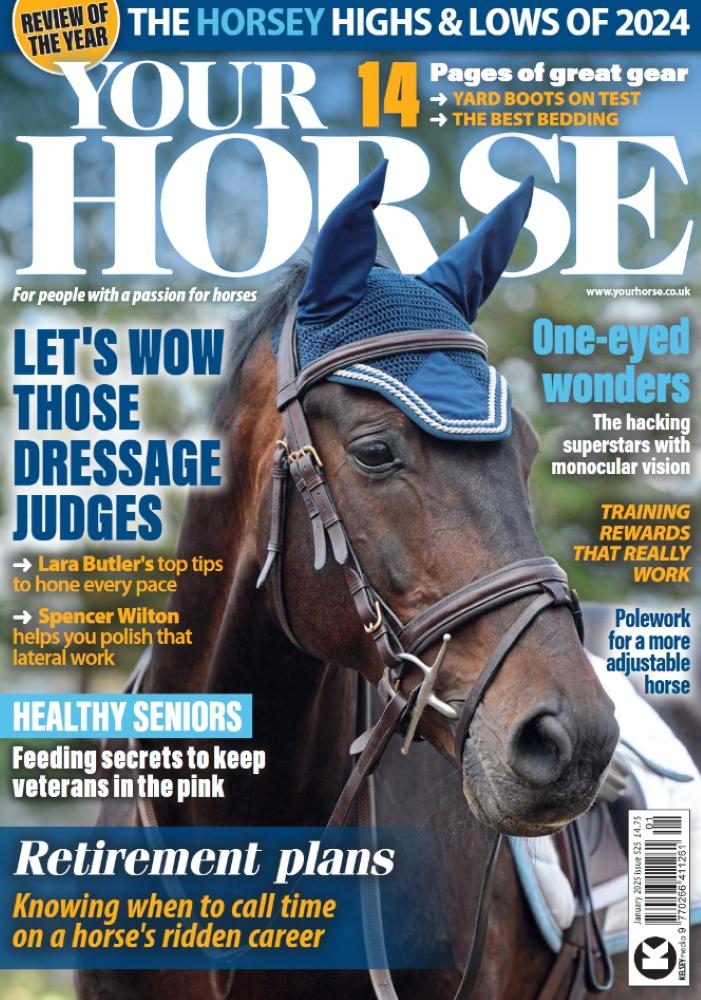In partnership with SPILLERS™
Have you ever found yourself wondering how you can improve your horse’s energy levels without compromising his waistline? A lack of energy, ‘sparkle’ or ‘oomph’ is a common reason owners turn to a nutritionist for advice about their horse’s diet, especially if their equine is a good doer.
While a lack of energy in the diet may seem like the most obvious culprit, diet is just one of many factors that can affect the horse’s energy levels. On the other hand, a diet that supplies too much energy could also be the problem.
Time for a health check
A number of clinical conditions can affect a horse’s energy levels, so it’s important to seek veterinary advice if you have any concerns, especially if lethargy is sudden, severe or out of character.
The vet will usually ask lots of questions, carry out a physical examination and in some cases take some bloods. If an underlying clinical issue, pain or poorly fitting saddle can be ruled out, it’s time to consider other potential causes.
Energy in vs energy out
The best practical way of assessing whether any horse is consuming sufficient energy for their workload is to look at their body condition.
Put simply:
- Overweight horses are consuming too much energy (unless they are losing weight);
- Underweight horses aren’t consuming enough energy;
- If your horse is maintaining a healthy body condition you’ve hit the sweet spot, regardless of their ‘ridden energy levels’.
If your horse is already in good or overweight condition, don’t be tempted to increase the amount of energy in their bucket.
Putting on weight
In addition to carrying a host of health and welfare risks, excess weight gain can have a negative effect on a horse’s energy levels and in turn their performance.
If your horse has piled on the pounds, slimming them down to a healthy body condition may improve their energy under saddle.
Exercising while overweight is hard work!
A balanced diet
Vitamins and minerals are needed for optimum health, and many are involved in energy metabolism which means a shortfall in the diet could result in lethargy.
Balancers are ideal for good doers because they provide the vitamins, minerals and amino acids needed to balance forage, while adding minimal calories, starch and sugar to the horse’s diet.
Sources of energy
Feeds high in cereal starch do promote a more energetic response in some horses, although the reasons for this are not fully understood.
This is why some owners choose traditional competition mixes or oats for those horses that are ‘lazy’ or in need of extra ‘sparkle’.
However, this strategy isn’t suitable (or effective!) for all horses, including those prone to laminitis, gastric ulcers, tying up and colic.
Equally, introducing feeds high in fibre and oil which are often described as sources of slow-release energy, won’t compensate for a lack of stamina caused by poor fitness or a lack of training.
Naturally laidback?
Every horse is an individual and, in some cases, lethargy is simply a part of the horse’s temperament.
Some horses are naturally laidback and prefer to take life at a slower pace.
While this can help to provide a much-needed confidence boost to novice or nervous riders, those ready to step up a gear may be better suited to a horse that is naturally more forward going.
Boredom busting
We all feel more enthusiastic about exercising if it’s an activity we enjoy and, like people, horses can get bored.
Adding some variety to your horse’s workload may help to increase their energy levels.
Fitness factor
Fitness is one of the factors that has greatest influence on energy levels, particularly stamina, so it’s important to be honest about whether your horse is fit enough for the work they’re being asked to do.
Speak to an instructor/trainer for advice on improving your horse’s fitness and maintaining a varied workload.
If your horse has recently been lame, always seek veterinary advice before bringing them back into work.
Lead image by Spillers
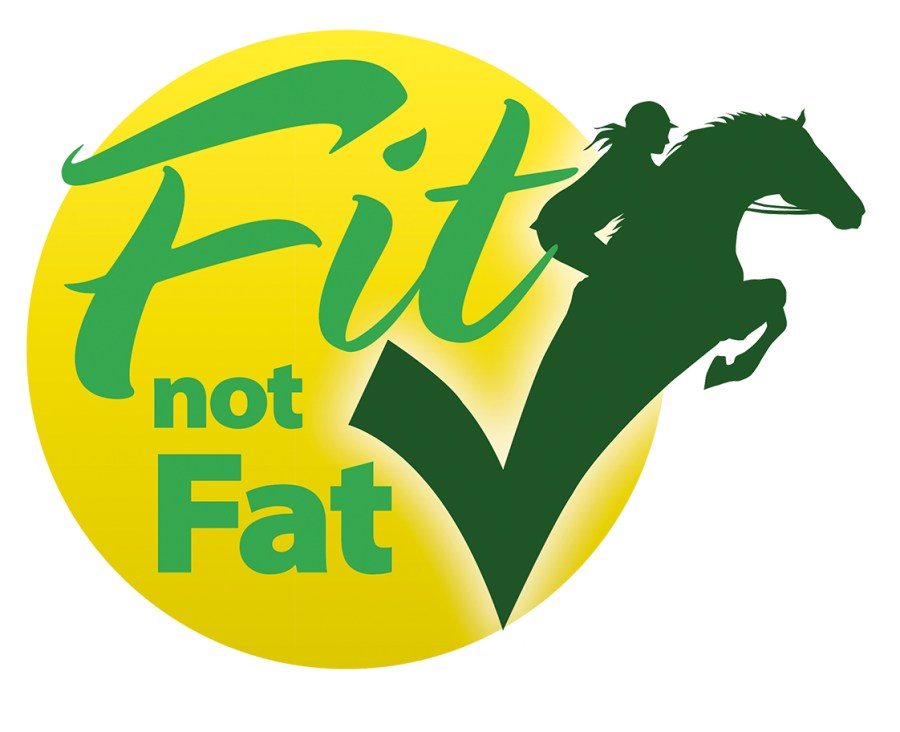
Have you heard about Your Horse’s #FitNotFat campaign? Equine obesity is an enormous welfare problem and we’re on a mission to provide owners and riders with the knowledge, skills and information you need to keep your horse in tip-top health. It could be life saving! Find out more
For friendly, advice on feeding your horse or pony you can contact the SPILLERS Care-Line on 01908 226626 or visit www.spillers-feeds.com

